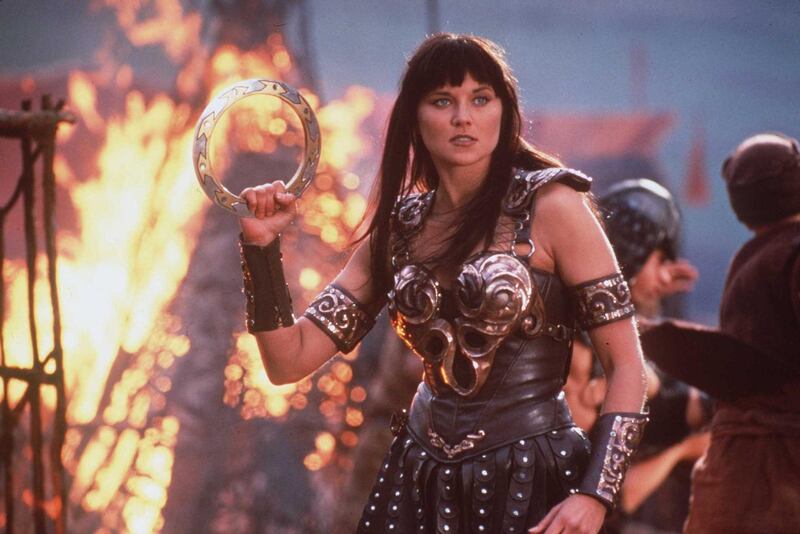Last week, Better Call Saul returned for its fifth and penultimate season. That's an impressive feat considering the show it was spun-off from, Breaking Bad, is roundly regarded as one of the finest television programmes of all time, and that only produced five seasons.
What makes Better Call Saul's run even more extraordinary is that some viewers believe it has managed to eclipse Breaking Bad in both consistency and quality. But should that come as a surprise? If you go back through the history of the small-screen, we'd argue that several spin-offs have surpassed their predecessors. Here's our pick.
'Frasier'
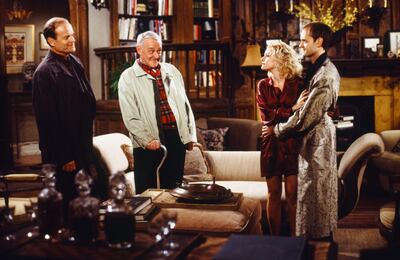
When Kelsey Grammer debuted as Frasier Crane in the third season premiere of Cheers back in 1984, he was only expected to appear in a handful of episodes. However, Grammer's performance was so impressive that not only did he become a series regular all the way through to Cheers' 1993 conclusion, but its producers David Angell, Peter Casey and David Lee decided to make a brand new series centred around the actor, too.
Although the foursome were originally adverse to trying to emerge from Cheers' shadow, the huge popularity of the sitcom meant Paramount repeatedly suggested a Frasier spin-off to them. Finally, Angel, Casey, Lee and Grammer caved, but moved Frasier's setting across the US to Seattle and embraced a more witty, sophisticated and intellectual form of comedy that not only distanced itself from the everyman approach of Cheers, but pretty much every other sitcom on at the time, too.
'The Simpsons'

The longest-running sitcom in American history couldn't have had a more inauspicious beginning. After being impressed by Matt Groening's series of Life In Hell newspaper cartoons, James L Brooks, the co-creator of The Tracey Ullman Show, hired the young cartoonist to oversee a few animated shorts that would air before and after its adverts.
Groening’s dysfunctional family proved to be so popular with viewers that Fox quickly approved a spin-off, which debuted on December 17, 1989. It has since been followed by 674 more episodes over the course of 31 seasons, and still shows no signs of stopping. Sure, its quality might have declined over the years, but its first 10 seasons were so original and hilarious that they’re still regarded as the pinnacle of television comedy.
'Xena: Warrior Princess'
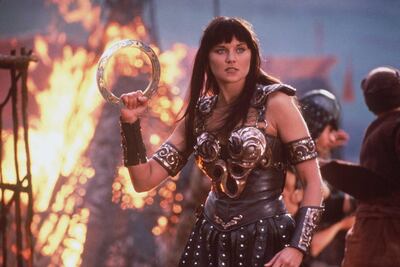
Just like the aforementioned Frasier, Xena was only supposed to have a brief tenure on television. In fact, the original intention was for her to appear as a villain in just three episodes of Hercules: The Legendary Journeys' first season. It didn't take long for its creators to see the massive potential in the character, though.
Not only did they turn her into a hero over this three episode arc, but work immediately began on the spin-off series, Xena: Warrior Princess, which debuted less than a year after Hercules' pilot. The six seasons and 134 episodes of Xena went on to make much more of a cultural impact, too. Thanks to the help of its devout fanbase, star Lucy Lawless became an icon, it was followed by its own comic-book series, and was a huge influence in the direction of other television series, especially when it came to the depiction of female characters.
'Star Trek: Next Generation'
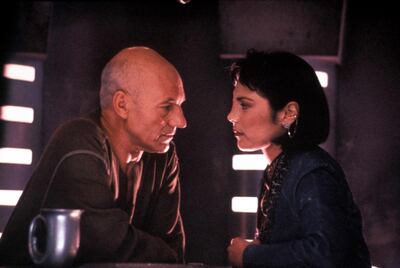
While there's no denying that the work of creator Gene Roddenberry and stars William Shatner and Leonard Nimoy in the original 1960's Star Trek series perfectly laid the groundwork for the mega franchise, it was The Next Generation's seven season run that really allowed it to blossom.
Patrick Stewart's performances as Captain Jean-Luc Picard bought a weight and seriousness that had previously been lacking, while it also connected with a much larger audience than the original series, which was actually cancelled in 1969 due to low ratings. Between 1987 and 1994 The Next Generation received 18 Emmy Awards nominations, won two Hugo Awards, and was even presented with a Peabody for excellence in television programming. The Next Generation brought Star Trek to a brand new audience, one that has continued to embrace the seven movies and seven follow-up series that have followed, the most recent of which saw Stewart return as Picard.
'Better Call Saul'
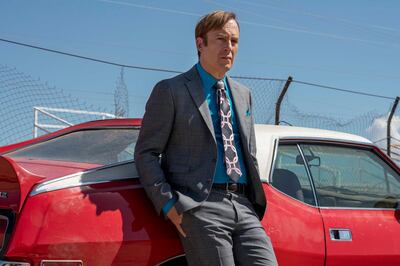
There's no denying that the final seasons of Breaking Bad produced some of the most thrilling and well-crafted episodes in television history. However, it shouldn't be forgotten that certain elements of its opening two seasons underwhelmed, as the show occasionally felt forced, unbelievable and lacking in any real depth.
Better Call Saul, and its examination of sleazy lawyer Saul Goodman (Bob Odenkirk), benefited from Breaking Bad finding its rhythm during its final three seasons. Not only did this allow Better Call Saul to hit the ground running, but it also meant the show could build on Breaking Bad's dark humour, gorgeous cinematography and patient approach, while also bringing a subtlety and nuance to its characters that its predecessor never came close to matching.
______________
Read more:
[ 'Parasite' has put a spotlight on foreign films, but will we start to watch more of them? ]
[ Abu Dhabi Media announces more than 60 new shows and programmes ]
______________
